#narrowleaf gentian
Explore tagged Tumblr posts
Text
















Photos from a lovely, post-Debby weekend in the Canaan Valley National Wildlife Refuge. Good, strong breeze to drive out the heat and keep the sky vibrant and constantly on the move. The narrow-leaved gentian (Gentiana linearis) is now at peak bloom in the mountains. This enchanting perennial loves damp mountain seeps and bog edges and is pollinated primarily by bumblebees, which are adept at prying open the flowers or just chewing through them if all else fails. The pearly everlasting (Anaphalis margaritacea) is also in bloom - my mom used these delicate perennials in her dried-flower arrangements.
#appalachia#vandalia#west virginia#wildflowers#flora#summer#allegheny mountains#canaan valley#canaan valley national wildlife refuge#insects#bumblebees#great spangled fritillary#brown-hooded owlet moth caterpillar#canaan fir#narrow-leaved gentian#narrowleaf gentian#bog goldenrod#flat-topped goldentop#field milkwort#purple milkwort#sulphur shelf#chicken of the woods#beech-drops#tall white aster#pearly everlasting
98 notes
·
View notes
Photo

Narrowleaf Gentian Gentiana linearis Gentianaceae Family
Photograph taken on July 31, 2020, at Algonquin Provincial Park, Ontario, Canada.
#wildflowers of southern ontario#Narrowleaf Gentian#gentian#Gentiana linearis#Gentianaceae#Algonquin Provincial Park#ontario#canada#wildflowers#wildflower#flowers#flower#purple
5 notes
·
View notes
Note
Hey! I love your blog so much, and I'm so happy that I found it (it's helped a lot)! I was wondering if you could do a list of flowers that mean (or fall into the category of/are similar to): Obsession, Obsessive love, 'til death do us part, I want your attention, I belong to you, you belong to me, etc., etc. Along with this, I'd also like to know what flowers are native to New Jersey (And also which ones bloom in the fall, if any?) Thank you, and have a lovely day!
That should be possible with some creativity given that obsession and bonding don’t exist as meanings themselves, but it leans well enough into the Victorian flower language to get something out of it still. Hope there’s something in here that works for your story.
arbor vitae – live for me, unchanging friendship
baby’s breath – everlasting love, innocence, pure of heart
bay leaf – I change but in death/dying
broom-rape – union
carnation (pink) – I will/I’ll never forget you, women’s love
cedar leaf – I live for thee
clover (white) – think of me
columbine – I cannot give thee up, folly, desertion
columbine (purple) – resolved to win
cowslip (american) – divine beauty, you are my angel, you are my divinity
currant – thy frown will kill me, thankfulness
daisy (double) – affection, I reciprocate your affection
daphane (rose) – I desire to please
eschscholzia – do not refuse me
euphorbia – persistence
fleur-de-lis – I burn, flame
foxglove – I am not ambitious for myself but for you, a wish, stateliness, occupation, insincerity, youth
furze – love for all seasons/occasions
gladiolus – you pierce my heart, generosity, I’m sincere, flower of the gladiators
heart’s ease – you occupy my thoughts, forget me not, think of me, thoughts
heart’s ease (purple) – you occupy my thoughts
hemlock – you will be my death
honeysuckle – generous and devoted affection, bonds of love, the bond of love, devotion, I would not answer hastily, fidelity
honeysuckle (coral) – the colour of my fate
honeysuckle (wild) – generous and devoted love
japonica – sincerity, symbol of love
jasmine (indian) – I attach myself to you, attachment, separation
laurestine – a token, I die if neglected, delicate attention
mallow (syrian) – consumed by love, persuasion
rose (carolina) – love is dangerous
shepherd’s purse – I offer you my all
spindle tree – your charms are engraven on my heart
tulip – (a) declaration of love, perfect lover, fame, beautiful eyes
tulip (red) – declaration of love
virginia creeper – I cling to you both in sunshine and in shade
Plants native to New Jersey that bloom in fall/autumn:
allegheny monkey flower
american angelica
american arrowhead
american blue vervain
american lotus
american water-willow
ashy sunflower
bigleaf aster
black-eyed susan
bluebell
blue bead lily
blue cohosh
blue mistflower
blue star
blue wood aster
bottle gentian
bowman’s root
brown-eyed susan
bunchberry
bushy aster
canada goldenrod
canada wild ginger
canadian violet
cardinal flower
carolina geranium
caroline redroot
closed bottle gentian
coastal plain joe-pye weed
common boneset
common evening primrose
cow parsnip
crooked aster
cutleaf coneflower
cup plant
downy skullcap
early goldenrod
false aster
false sunflower
field thistle
flat-topped white aster
foam flower
fringed bleeding heart
fringed loosestrife
gayfeather
golden crownbeard
grass-leaved goldenrod
grassy arrowhead
gray goldenrod
great blue lobelia
hairy aster
hardy hibiscus
heath aster
hoary vervain
horizontal calico aster
jerusalem artichoke
joe-pye weed
late boneset
marsh betony
maryland golden aster
maximilian sunflower
meadow phlox
narrowleaf mountain mint
new england aster
new york aster
new york ironweed
nodding lady’s tresses
orange fringed orchid
orange jewelweed
patridge pea
pearly everlasting
pink tickseed
prairie sagebush
purple-head sneezeweed
purple mountain saxifrage
red baneberry
rock harlequin
rough goldenrod
salt heliotrope
sawtooth sunflower
scarlet bee balm
seashore mallow
seaside goldenrod
selfheal
showy black-eyed susan
showy goldeneye
showy goldenrod
showy tick trefoil
slender buch clover
slender dayflower
smooth beggartick
smooth blue aster
sneezeweed
spotted joe-pye weed
stiff goldenrod
stiff sunflower
swamp sunflower
swamp thistle
sweet goldenrod
sweetscent
sweet-scented joe-pye weed
tall boneset
tall cinquefoil
tall goldenrod
ten-petaled sunflower
threadleaf coreopsis
tickseed
virginia meadow beauty
water arum
western sunflower
wild bergamot
wild cucumber
wild potato vine
wild senna
wingstem
white baneberry
white goldenrod
white panicle aster
white snakeroot
white turtlehead
white wood aster
whorled milkweed
woodland sunflower
wreath goldenrod
yellow jewelweed
yellow pond lily
This website gives a breakdown by county in form of excel lists, albeit it doesn’t say whether the plants bloom in fall or not.
https://npsnj.org/native-plants/where-to-buy-natives/plant-lists/
– Mod Jana
Disclaimer
This blog is intended as writing advice only. This blog and its mods are not responsible for accidents, injuries or other consequences of using this advice for real world situations or in any way that said advice was not intended.
https://www.gardenia.net/native-plants/new-jersey
#flower language#gardening#writing advice#victorian flower language#obession#obessive love#feelings of love#attention#you belong to me#I belong to you#mod jana#ask answered
20 notes
·
View notes
Text
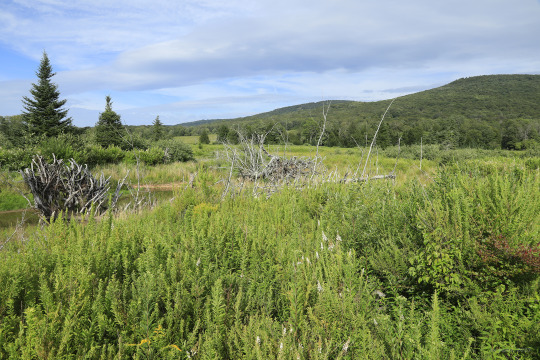



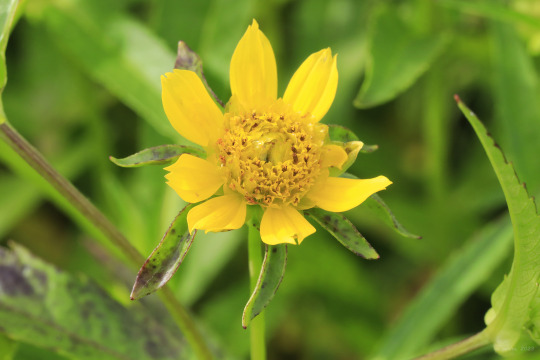

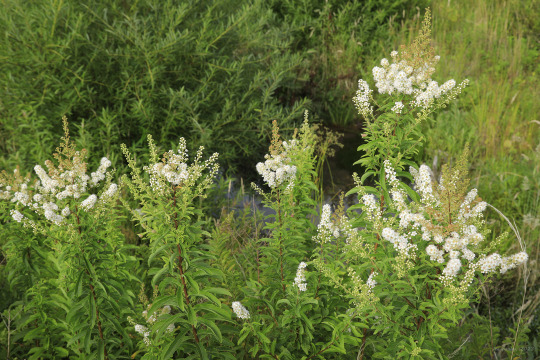


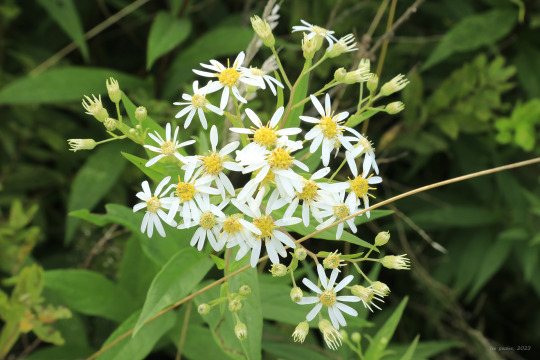

Late afternoon at the balsam fir swamp in Canaan Valley National Wildlife Refuge.
From top: nodding bur-marigold (Bidens cernua), also sometimes referred to as nodding beggarticks, a clumping, wetlands-loving annual whose flowerheads nod as they mature and get heavier; bushy St. John's wort (Hypericum densiflorum), a gorgeous, densely-packed shrub with vibrant yellow flowers and copper-colored bark; white meadowsweet (Spiraea alba), a rapidly-colonizing shrub whose branching clusters of white flowers are one of summer's most generous gifts; narrow-leaved gentian (Gentiana linearis), a tall, elegant bottle gentian that can only be pollinated by bumblebees strong enough to pry open (or chew through) its closed petals; flat-topped white aster (Doellingeria umbellata), also known as parasol whitetop, a tall, attractive mountain aster with flat, branching clusters of white flowers; and the dainty white flowers of virgin's bower (Clematis virginiana), a vigorous, twining vine that forms beautiful, dense waves of foliage and flowers.
#appalachia#vandalia#west virginia#wildflowers#flora#summer#allegheny mountains#canaan valley#canaan valley national wildlife refuge#nodding bur marigold#nodding beggarticks#bushy st. john's wort#white meadowsweet#narrow-leaved gentian#narrowleaf gentian#flat-topped white aster#parasol whitetop#virgin's bower#balsam fir awamp#canaan fir
73 notes
·
View notes
Photo
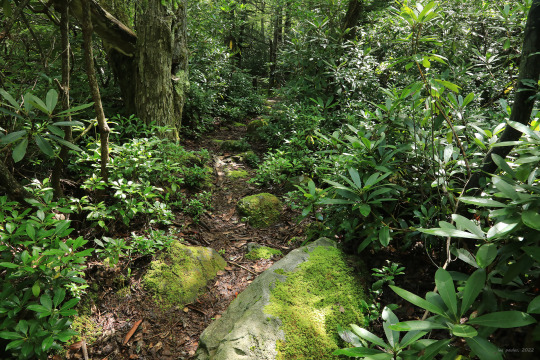
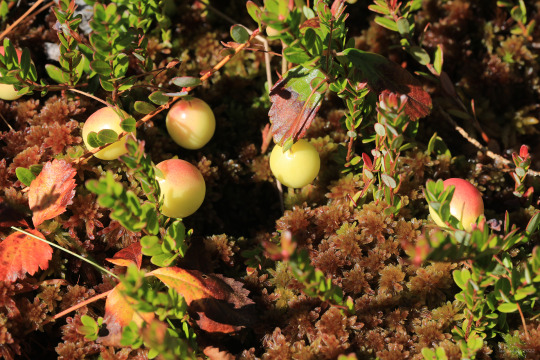

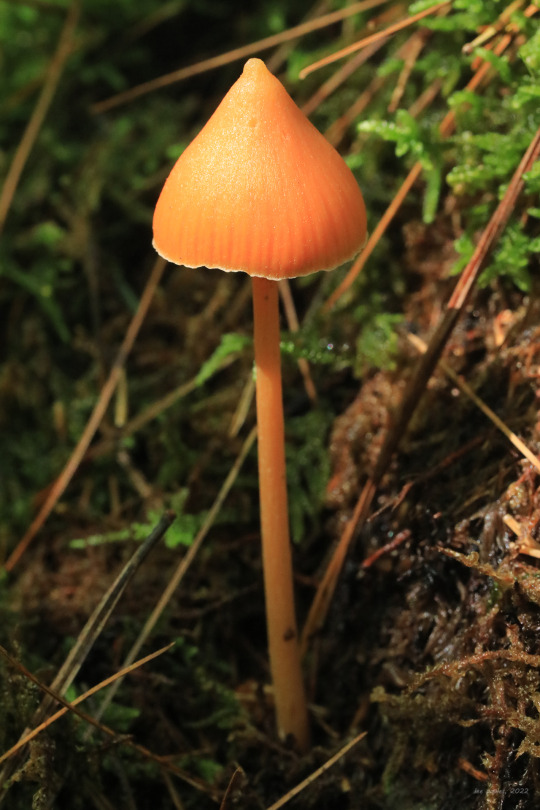
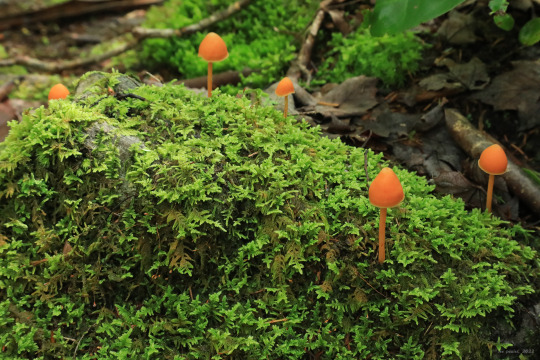
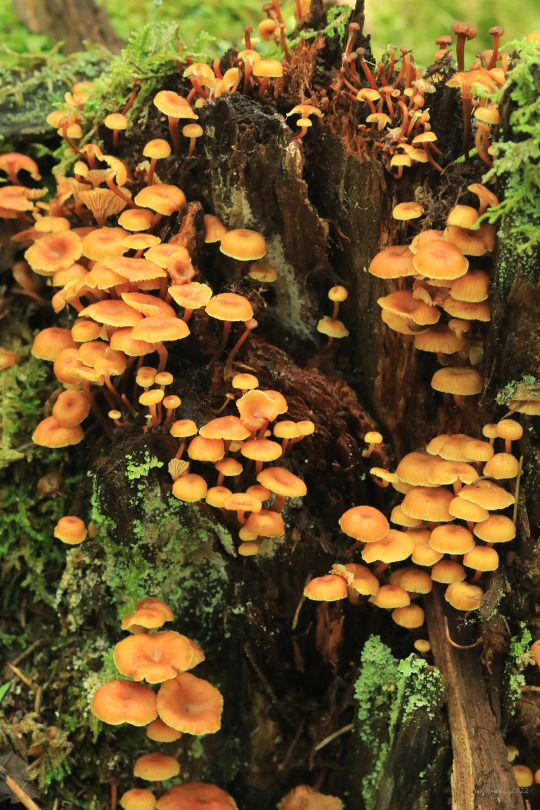

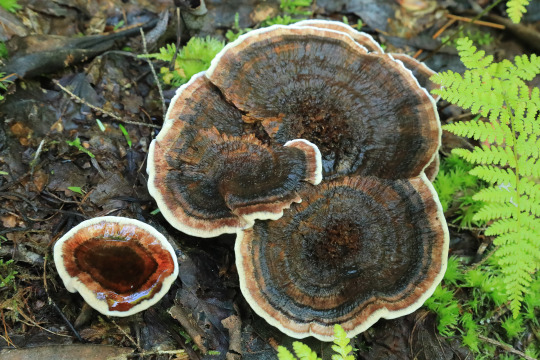
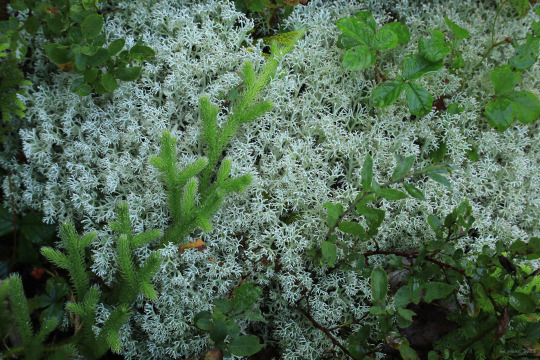

Not so long ago, the land encompassed by the Little Canaan Wildlife Management Area, which adjoins the Canaan Valley National Wildlife Refuge, was a timbered-out, burned-over wasteland. Today, the WMA is in full-scale recovery and provides a home to a diverse collection of wildlife, including black bears, fishers, porcupines, northern goshawks, ruffed grouse, and saw-whet owls.
#appalachia#vandalia#west virginia#little canaan wildlife management area#allegheny mountains#tucker county#vaccinium macrocarpon#large cranberry#gentiana linearis#narrowleaf gentian#entoloma quadratum#unicorn mushroom#rickenella fibula#orange moss agaric#mycena leaiana#orange mycena#thelephora terrestris#earthfan#common fiber vase#cladonia rangiferina#reindeer lichen#lycopodium clavatum#running clubmoss
202 notes
·
View notes
Photo

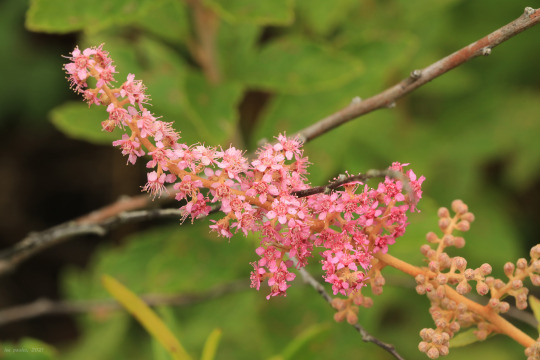
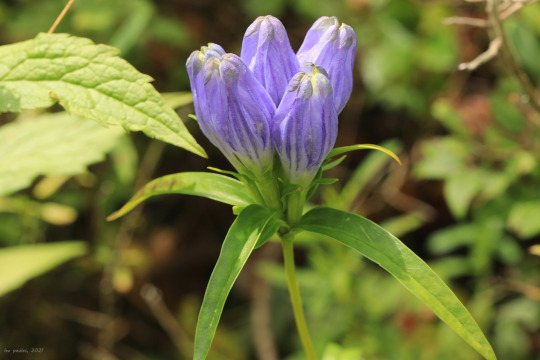
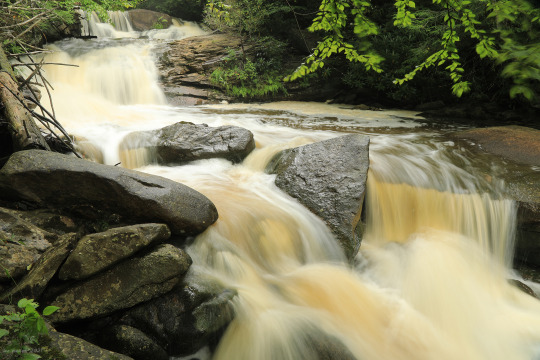



Blinded by the green (redux): Blackwater Canyon, Panel 1.
#appalachia#vandalia#west virginia#summer#green#flora#wildflowers#blackwater falls#blackwater falls state park#monongahela national forest#pendleton run#blackwater canyon#spiraea tomentosa#steeplebush#hardhack#gentiana linearis#narrowleaf gentian
55 notes
·
View notes
Photo







Post 2 of 2: Above are a few more photos highlighting the seasonal treasures of the Dolly Sods Wilderness Area. Although the extended heat and drought of September have delayed or muted the colors of the plains, the heath thickets (a mixture of huckleberry and blueberry) were starting to get their burnished sheen this past weekend. A few wildflowers - among them narrowleaf gentian (Gentiana linearis) and flat-topped white aster (Doellingeria umbellata) - were still in bloom, but most had gone to seed. Closer to Dobbins Slashings in Dolly Sods North, beavers were building a dam in the middle of a trail; the quaking aspen nearby shivered in the wind and dropped gold-plated leaves on the pond’s surface.
#appalachia#vandalia#west virginia#dolly sods wilderness area#wilderness#dolly sods north#monongahela national forest#fall#autumn#allegheny mountains#allegheny front#narrowleaf gentian#flat-topped white aster#quaking aspen#heath#huckleberry#blueberry
169 notes
·
View notes
Photo










One of the state’s newest reserves, Little Canaan Wildlife Management Area is still recovering from heavy logging during the last century and was under threat of vacation home development for a time (if you want to know how completely the natural beauty of a place can be obliterated by second homers from DC, then visit Deep Creek, Maryland). The WMA abuts Canaan Valley National Wildlife Refuge and provides upland habitat to compliment the refuge’s wetlands. There’s a lovely cranberry bog adjacent to one of Little Canaan’s winding trails; it was brimming with cotton grass, narrowleaf gentian, and plump cranberry fruits starting to ripen.
#appalachia#vandalia#west virginia#little canaan wildlife management area#allegheny mountains#cranberry#bog#cotton grass#narrowleaf gentian
37 notes
·
View notes
Photo
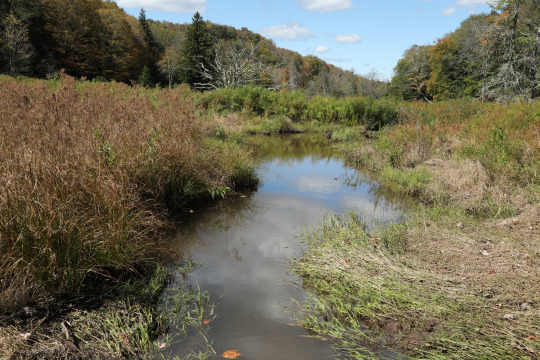
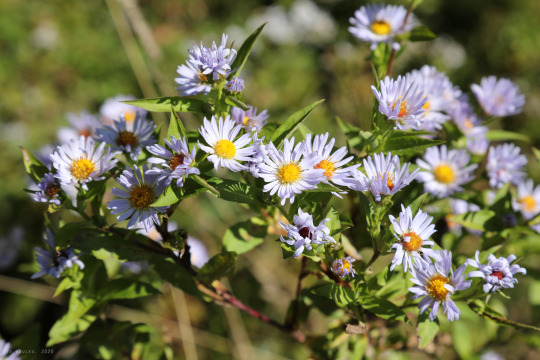


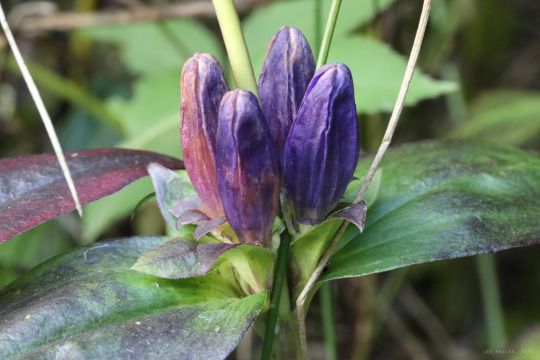

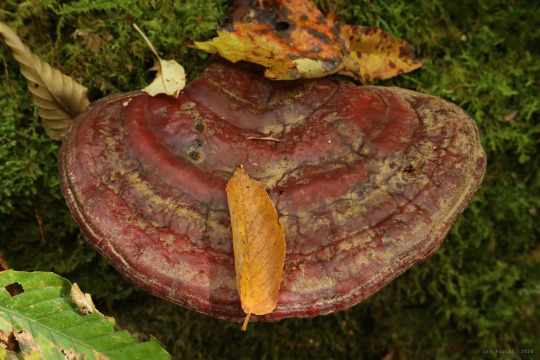
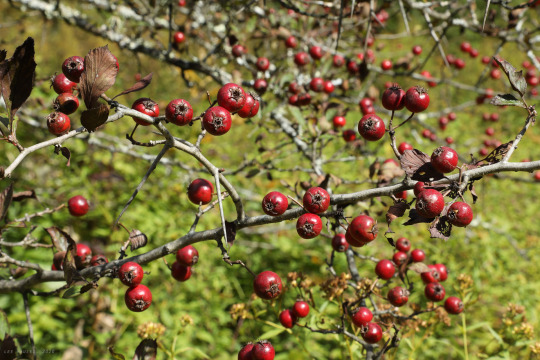
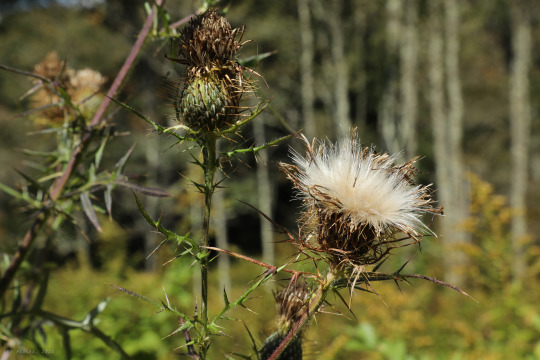
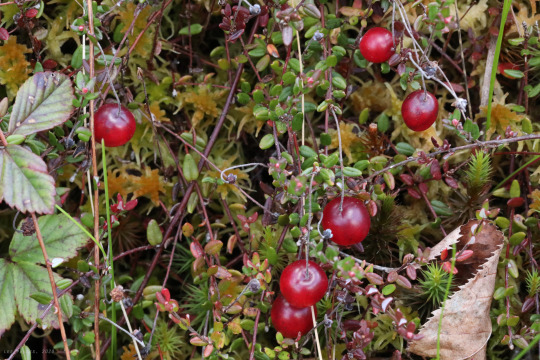
Above are a few late season gems from my trip up the Highland Scenic Highway (top to bottom): (1) a marshy area along the Cowpasture Trail at Cranberry Glades; (2) the ever-gorgeous purplestem aster (Symphyotrichum puniceum), also known as swamp aster; (3 - 4) a lavender-phased variation of narrowleaf gentian (Gentiana linearis), perhaps the loveliest and most delicate of all the autumn wildflowers in these mountains; (5 - 6) the more broadly-leaved closed bottle gentian (Gentiana andrewsii), quite striking in its own right; (7) red-belted conk (Fomitopsis pinicola), a shelf fungus parasitic on conifers; the brilliant red “haws” (berries) of dotted hawthorn (Crataegus punctata), which are edible and have a tangy-sweet flavor; a grandly-beautiful field thistle (Cirsium discolor) gone to seed; and the ripe, tart berries of large cranberry (Vaccinium macrocarpon), the only healthy thing I snacked on all day (the wild berries are a hundred times more pucker-worthy than the commercially-grown ones).
#appalachia#vandalia#west virginia#flora#autumn#fall#wildflowers#fungi#asteraceae#symphyotrichum#purplestem aster#swamp aster#gentiana#narrowleaf gentain#closed bottle gentian#fomitopsis#red-belted conk#crataegus#dotted hawthorn#white haw#cirsium#field thistle#vaccinium#large cranberry#highland scenic highway#allegheny mountains#cranberry glades#monongahela national forest
44 notes
·
View notes
Photo

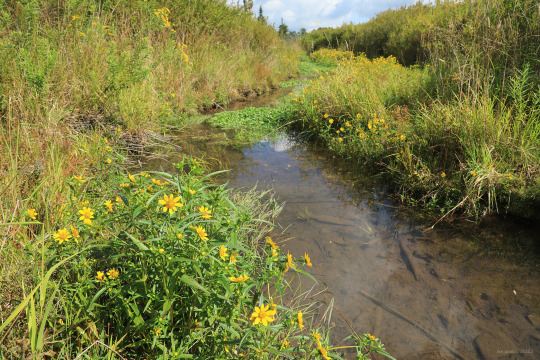
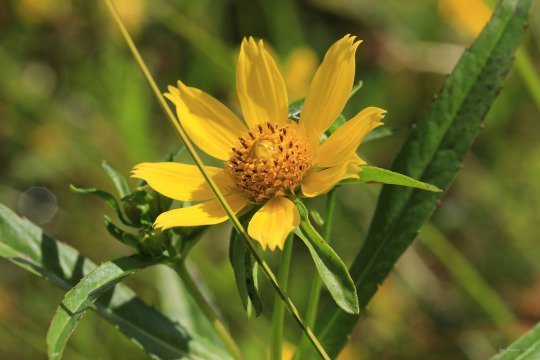
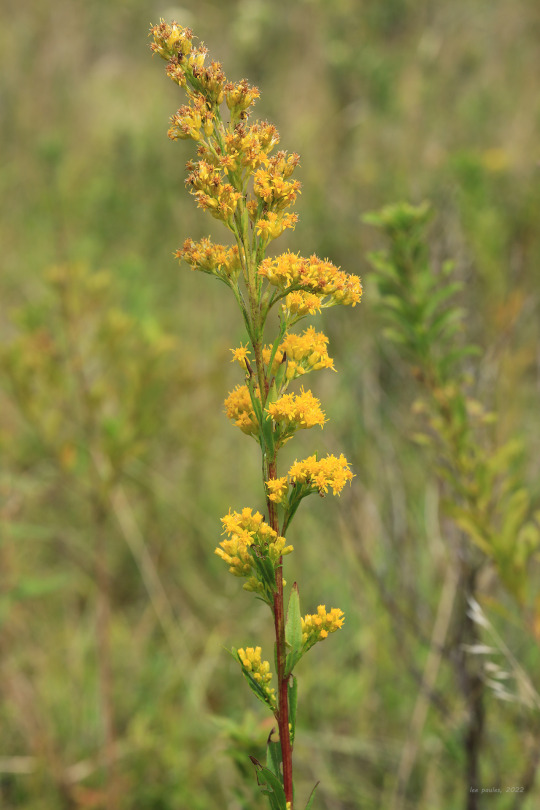

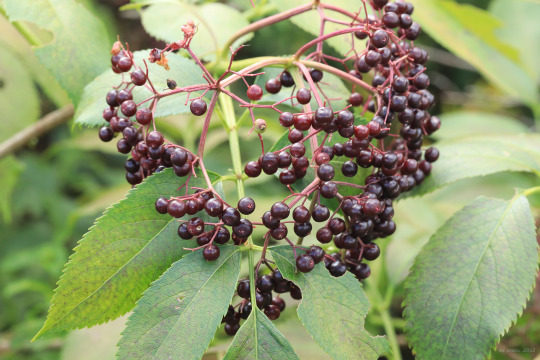
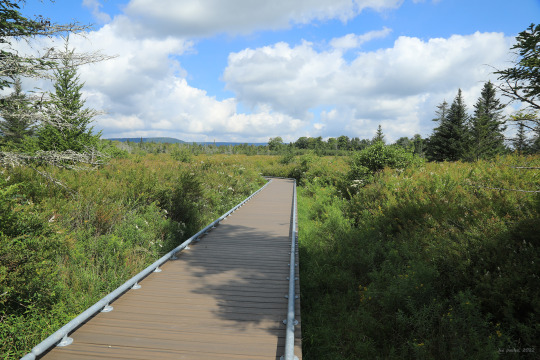

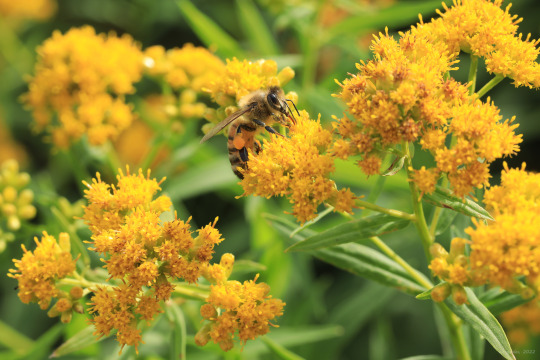

Canaan Valley National Wildlife Refuge, Part 3. Canaan Valley is the highest mountain valley of its size east of the Mississippi River and hosts the largest wetlands complex in the Central and Southern Appalachians. Most of these wetlands are now protected by Canaan Valley State Resort Park and Canaan Valley National Wildlife Refuge. The Freeland Boardwalk Trail in the refuge is an ideal place to get an up-close experience with one of the wetland types - a balsam fir swamp. A half-mile long, raised boardwalk with wildlife viewing platforms winds through the swamp, allowing visitors to interact with the wildlife and plants without damaging the fragile ecosystem.
From top: Bur marigold (Bidens laevis), also known as smooth beggartick, a wetlands-loving beauty that produces a profusion of golden flowerheads; bog goldenrod (Solidago uliginosa), another wetlands native with a bright red stem and closely-packed flowers on a plume-like inflorescence; the bright blue berries of arrowwood viburnum (Viburnum dentatum); the ripening berries of American black elderberry (Sambucus canadensis), also known as American black elder; white meadowsweet (Spiraea alba), a native spirea of Appalachia’s wetlands that draws hordes of pollinators with its beautiful spikes of white flowers; grass-leaved goldenrod (Euthamia graminifolia), also known as flat-top goldentop, not a true Solidago, but even more beautiful with its flat panicles of golden-yellow flowers and graceful foliage; and an industrious bumblebee prying open the closed petals of a narrowleaf gentian (Gentiana linearis) to get at the nectar pot below.
#appalachia#vandalia#west virginia#canaan valley#canaan valley national wildlife refuge#wetlands#balsam fir swamp#canaan fir#balsam fir#freeland boardwalk trail#bidens laevis#bur marigold#smooth beggartick#solidago uliginosa#bog goldenrod#viburnum dentatum#arrowwood viburnum#sambucus canadensis#american black elderberry#american black elder#spiraea alba#white meadowsweet#euthamia graminifolia#grass-leaved goldenrod#flat-top goldentop#gentiana linearis#narrowleaf gentian#narrow-leaved gentian#bumblebee#bombus
51 notes
·
View notes